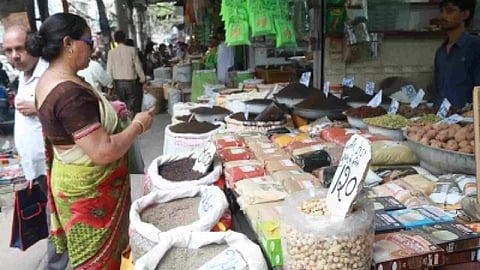WPI to enter positive zone next month from negative in August
CHENNAI: Even though the wholesale price index (WPI) inflation (WPI) for August 2023 was minus 0.52 per cent, it will enter the positive zone from next month onwards, said a top economist at CARE Ratings.
The central government on Thursday said the annual rate of inflation based on all India WPI number is (-) 0.52 per cent (Provisional) for the month of August, 2023 (over August, 2022) against (-) 1.36 per cent recorded in July, 2023.
"The negative rate of inflation in August, 2023 is primarily due to fall in prices of mineral oils, basic metals, chemical & chemical products, textiles and food products as compared to the corresponding month of previous year," the government said.
Reacting to the WPI numbers Rajani Sinha, Chief Economist, CARE Ratings told IANS: "WPI contracted for the fifth straight month in August due to deflation in fuel and power and manufactured products categories whereas WPI food inflation remained in double digits. Sub-categories such as mineral oils, textiles, chemicals and metals remained in contractionary zone on an annual basis."
However, some pressure was visible in fuel and power category with a sharp sequential rise in mineral oils and electricity prices, she added. “With the support of high base fading, some uptick in WPI inflation could be seen in the second half. We could expect WPI inflation to enter the positive territory next month onwards. Additionally, rise in global crude oil prices and deficient rainfall domestically pose an upside threat. Nevertheless, for the full fiscal year (FY24), we expect WPI inflation to average in the range of 1-2 per cent," Sinha said.

